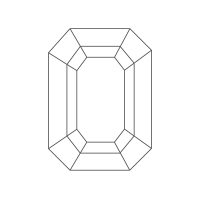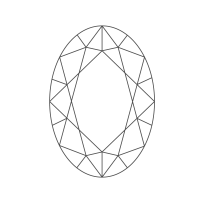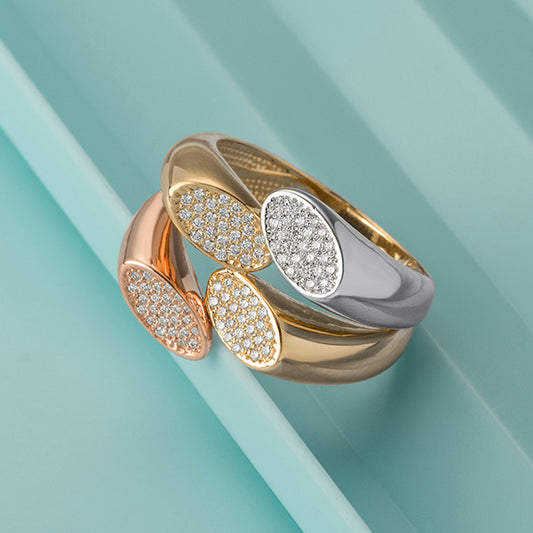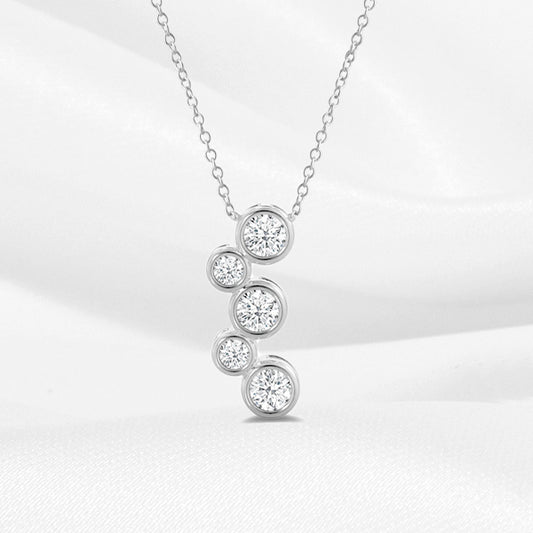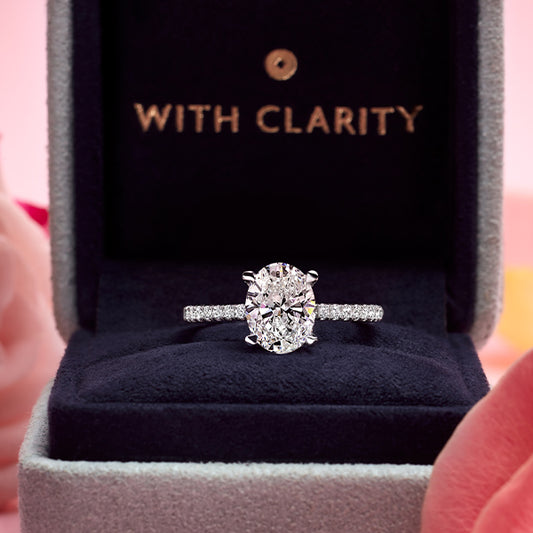Guide to Diamond Testers
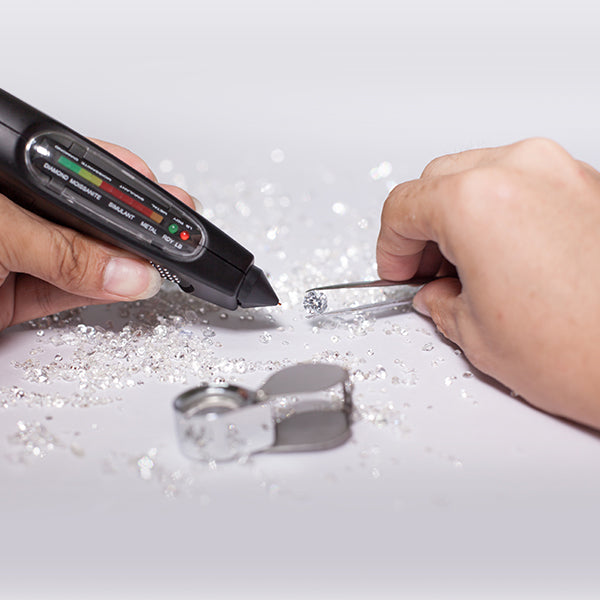
Diamonds continue to be a classic, sought-after gemstone, and the demand keeps on growing for these stunning, rare stones. With so many diamonds on the market, some people have purchased a diamond tester online or sought a professional jeweler to help them test their diamonds. While a diamond tester is one tool to test for diamonds, there are a few ways to determine whether a diamond is authentic. Keep reading to learn more about diamond testers, their accuracy, selecting the best device and some helpful tips in shopping for diamonds.
What Is a Diamond Tester?
A diamond tester is a portable, pocket-sized machine that has a small, needle-like tip that is placed on the stone to test it. It can accurately indicate if the stone is a real diamond based on the gem’s physical properties. If the diamond is authentic, the device indicates that on its display or with a sound.
You might be curious how diamond testers work. It tests the stone for its thermal and/or electrical conductivity. Thermal conductivity diamond testers measure the amount and speed that heat travels through the stone. Electric conductivity testers measure the amount and speed that electricity travels through the gemstone.
To get into greater detail, every gemstone has a unique chemical structure, so each one conducts heat and electricity differently. As a result, heat or electricity passes through an authentic diamond differently than a cubic zirconia.
Are Diamond Testers Accurate?
Diamond testers are accurate in checking diamonds for authenticity. Sometimes moissanite can throw off a thermal conductivity diamond tester because they’re similar to diamonds in the way they conduct heat. To solve this problem,you can use an electrical conductivity diamond tester to test the stones because diamonds and moissanites conduct electricity differently.
In addition to diamond testing devices, there are at-home tests you can do to check the authenticity of natural and raw diamonds including the sandpaper test, read-through test, sparkle, water, and heat tests. If you’d like to read about additional tests for diamonds, click here. However, nothing is as accurate as having a lab like GIA or IGI assess the diamond. Diamond testers are never as reliable even if they are used by jewelers- as lab certification will be.
How to Choose a Diamond Tester?
Both professional jewelers and individuals can purchase and use diamond testers. If you’re interested in purchasing one, there are some points to keep in mind.
- Opt for the latest model: technology is constantly changing everywhere, and that’s the same for diamond testing detectors as well. The latest models combine heat and electricity testing for the greatest accuracy.
- Make sure you opt for a device that uses electrical conductivity (heat + electricity): This type of model will help you test diamonds as well as moissanite.
- Choose a diamond tester that signals if you accidentally touch part of the metal setting instead of the stone. A common error is testing the metal instead of the stone and getting a false negative. If your tester doesn’t recognize metal, it can indicate that you are holding a real diamond when you unknowingly touch the setting, even if the diamond itself is fake.
Diamond Shopping Tips
There’s plenty of diamond jewelry online these days, and you want to ensure that the diamond you buy is authentic and has the quality you wanted (and bought). It’s important to keep a few points in mind when you’re browsing loose diamonds or diamond jewelry online:
- If you’re selecting a lab-created or natural diamond, make sure it’s certified by renowned institutes such as IGI and GIA. Certified diamonds are a good way to ensure authenticity, and they also come with details about the quality.
- Check the certificate of authenticity. Certified diamonds come with proof of ownership and authenticity. It’s insurance that you’re getting what you pay for, which is worth the peace of mind and having confirmation of your authentic stone.
- Buy from a reputed brand that offers easy returns and exchanges if you’re dissatisfied with the product or have any issues. Research the warranty, reputation of the company, and the exchange/refund policy.
FAQs
-
Do diamond testers only work on diamonds?
Additional gems besides diamonds have high conductivity (such as moissanite) but a diamond tester can separate a diamond from a cubic zirconia. The latest diamond testing devices combine heat and electricity testing so they’re the most accurate. -
Does a diamond tester beep?
It depends on your diamond tester model. Some diamond testers make a sound to indicate that the test is over, while some will only show the readings on the meter. -
How accurate are diamond testers?
Diamond testers can be a helpful tool as part of a multi-stage test to determine if a diamond is authentic, but it should not be the only test. Diamond tester pens are a helpful way to separate out CZ from diamond. Sometimes moissanite can throw off a thermal conductivity diamond tester because they’re similar to diamonds in the way they conduct heat. To solve this problem,you can use an electrical conductivity diamond tester to test the stones because diamonds and moissanites conduct electricity differently. -
Will a diamond tester work on black diamond?
Diamond testers won’t always work on black diamonds accurately. They’re harder to test with a diamond checker, so it’s best not to rely on the diamond tester for black diamonds. Regular diamonds are carbon atoms stacked tightly in a crystal structure; but black diamonds (also referred to as carbonados, a Portuguese term for an opaque, dark diamond) have a bit more to them. They get their color from large quantities or clouds of mineral inclusions (graphite, pyrite or hematite) in the stone.



